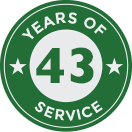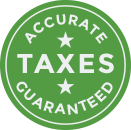How Your Church Can Comply With The New Overtime Rules
The FLSA requires covered employers to pay “non-exempt” employees at least the minimum wage for each hour worked as well as overtime pay for all hours worked in excess of 40 in a workweek. Federal_FLSA_Exemption Guide If your exempt employees earn less than the new salary requirement, they will no longer meet exemption criteria and…
Are You Hiring Temporary Church Employees?
Hiring Temporary Employees Churches often have lots of tax and legal questions when hiring temporary employees. Temporary employees are still employees; not independent contractors. An employee working in a church — whether the job is temporary or permanent, part-time or full-time — is an employee of the church. It is illegal for the church to treat a temporary…
Is Your Babysitter An Employee?
Who’s a Household Employer? The IRS defines a household employer as someone who pays an individual to perform duties in or around their home and has the right to control when, where, how or by whom the work should be performed. Household employees include nannies, senior caregivers, housekeepers, nurses, personal assistants, chefs, estate managers, etc….
Your Social Security Statement is now at your fingertips
Have you ever received a Social Security Statement in the mail? You know, the one that shows all the earnings you’ve had each year and how much you could receive per month in Social Security benefits when you retire? The Statement contains crucial information to plan for a comfortable retirement. Now, thanks to my Social Security,…
What Qualifies for Ministry Clothes Deduction
What Qualifies for Ministry Clothes Deduction The cost of clothing can be a deductible ministry expense only if the clothing is: required or essential in the taxpayer’s employment not suitable for general or personal wear; and not worn for general or personal wear. You can only take the work clothes deduction if the apparel is…
Ministry Income – 1099 Form
Sole proprietorships are single-owner, unincorporated businesses ranging from home-based businesses to ministry income reported on form 1099. A sole proprietorship is a popular form because it’s straightforward and low cost. This entity allows you to run a one-man show with little administrative overhead. But, you become personally responsible for ministry debts and other obligations like taxes….
Clergy Couple Housing
Each person of a clergy couple is entitled to the same housing allowance ordinarily provided a pastor who is not married to a pastor. Both pastors in a clergy couple are to receive a housing allowance. When cash housing allowances are provided, the contributions for each pastor are based on the total of base compensation…
Pre-tax Health Care Options (SHOP)
Your church may pay for all or a portion of the cost of SHOP coverage on a pre-tax basis. If you want employees to share in the cost of coverage, your church may use a cafeteria plan, as describe in Section 125. This would allow the employees to pay a portion of the SHOP premiums…
Marketplace/Exchange Health Coverage
Employees may apply for health coverage directly through the Health Insurance Marketplace, also known as the “Exchange”. Employees must pay for this coverage on a after-tax basis. Beginning, 2014, your church may not provide its employees with a pre-tax reimbursement for the cost of coverage obtained through the Exchange. However, it may increase an employee’s…
5 Tips On Creating PTO Policy For Your Church
In the payroll business, we see many versions of time off policies – it’s rare to have two that are the same. However, one thing we do see with regularity is churches tying themselves in knots trying to implement a policy that they think is fair for everyone. What they end up doing is creating…






